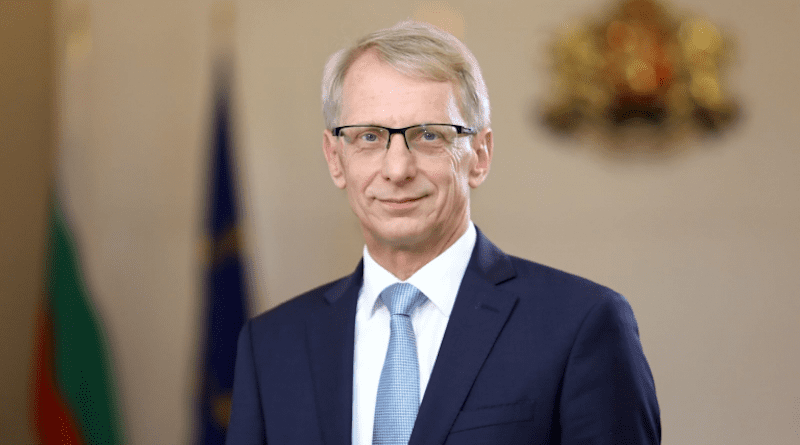Bulgaria’s PM Calls Pro-Russian Party Neo-Fascists
By EurActiv
By Krassen Nikolov
(EurActiv) — The radical pro-Russian party Vazrazhdane is a neo-fascist organisation because of the aggressive behaviour of its leader and supporters, Bulgarian Prime Minister Nikolay Denkov declared on Tuesday (27 June), ahead of his first visit to Brussels.
“A neo-fascist party is on the rampage in the National Assembly, it parades in the national media, a war has been declared on European values, which are also Bulgarian values. Bulgaria will lose the battle for its European identity without the courageous European position of the media,” said Denkov, his last words being a quote by the Bulgarian philosopher Prof. Georgi Fotev.
Vazrazhdane and its leader Kostadin Kostadinov have been escalating their aggressive rhetoric recently.
A Vazrazhadane-led protest vandalised the office of the EU in Sofia on 21 May, and Emil Yankov, an MP from Vazrazhdane, pledged to send political opponents to the communist-era concentration camp of Belene. Last week, Vazrazhdane supporters made death threats against opponents in front of the police in the largest Bulgarian city on the Black Sea – Varna.
On Sunday, Kostadinov incited violence, calling his supporters to “annihilate” his party’s political opponents. This call was made in the context of the attempted putsch by the Russian private military group Wagner and was aimed at people who oppose Putin.
Despite numerous incidents, Bulgarian police have failed to take any form of action against the party members. As a result, Denkov called on authorities to take action against, in particular, the recent call for violence.
Denkov’s statement was made on the eve of his first Brussels visit. The new Bulgarian leader on Wednesday will meet with European Commission President Ursula von der Leyen, Council President Charles Michel and NATO Secretary General Jens Stoltenberg. He will also take part in the EU summit on Thursday and Friday.
The elephant in the room
As Denkov will meet von der Leyen, the elephant in the room will be the referendum Vazrazhdane has initiated against Bulgaria joining the eurozone. Legally the referendum cannot undo the commitment Bulgaria has taken under its EU accession treaty to join the eurozone, but Vazrazhdane wants the accession postponed until 2043, when the income of Bulgarians would be closer to that of the richer countries in the Union.
The necessary signatures for the referendum have been gathered, and the risk that a majority would vote in favour of postponing the eurozone accession exists. Theoretically, the referendum could be held as early as this autumn, in parallel with the local elections.
For now, there is no communication effort to explain to citizens the advantages of joining the eurozone, while Vazrazhdane’s campaign against the common EU currency is in full swing.
According to EURACTIV sources, the EU executive would like the new Bulgarian government to defuse the referendum’s risk and be more active in countering Russian propaganda and disinformation.
The new Justice Minister, Atansas Slavov, said that “as a democratic society, we cannot allow violence in a political process to become the norm because that means compromising the very idea of constitutional democracy.” He, too, called on the Bulgarian investigative authorities to start investigations against Vazrazhdane
In response, Kostadinov requested television stations to give him more speaking time.
On Tuesday, the Prosecutor’s Office of Sofia announced it launched an investigation against Kostadinov for inciting violence and hatred. The deadline for inspecting by law is up to three months, after which an assessment will be made as to whether there is sufficient data for a committed crime.
The prosecutor’s office told EURACTIV that there were two case filing options. One is for inciting hatred and violence, and the other is for preaching fascist and anti-democratic ideology. If data is collected after the end of the investigation, the supervising prosecutor can open a case of fascist propaganda.

